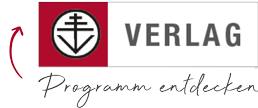
Educational Media and Technology Yearbook
Volume 43 (2020)
- Taschenbuch 197.99 €
- Hardcover164.99 €
- Hardcover197.99 €
- E-BOOK (PDF mit drm)94.92 €
- Hardcover142.99 €
- E-BOOK (PDF)149.79 €
- E-BOOK (PDF)106.99 €
- E-BOOK (PDF)154.00 €
- E-BOOK (PDF)149.79 €
- E-BOOK (PDF)96.29 €
- E-BOOK (PDF)96.29 €
- E-BOOK (PDF)128.39 €
- E-BOOK (PDF)181.89 €
- E-BOOK (PDF)154.00 €
- E-BOOK (PDF)96.29 €
- E-BOOK (PDF)117.69 €
- Taschenbuch109.99 €
- Hardcover109.99 €
- Taschenbuch131.99 €
- Hardcover164.99 €
XI, 316 Seiten; XI, 316 p. 8 illus., 7 illus. in color.; 23.5 cm x 15.5 cm
Sprache English
1. Auflage
2022 Springer International Publishing
ISBN 978-3-030-71776-6
Hauptbeschreibung
This book is Volume 43 of the Educational Media and Technology Yearbook. For the past 40 years, our Yearbook has contributed to the field of Educational Technology by presenting contemporary topics, ideas, and developments regarding diverse technology tools for education. The Yearbook has inspired researchers, practitioners, and teachers to consider how to develop technological designs, curricula, and instruction.
The audience for the Yearbook typically consists of media and technology professionals in K-12 schools, higher education, and business contexts. The Yearbook editors have dedicated themselves to providing a record of contemporary trends related to educational communications and technology and strive to highlight special movements that have clearly influenced the educational technology field. This volume continues the tradition of offering topics of interest to professionals practicing in other areas of educational media and technology.
- Includes research on emerging and contemporary topics in the field of educational technology;
- Provides an ongoing report on the current issues in the field of educational technology;
- Contains a section presenting organizations dedicated to educational technology;
- Includes a section presenting graduate programs in the field of educational technology;
- Includes a section presenting mediagraphy in the field of educational technology.
Klappentext
This book is Volume 43 of the Educational Media and Technology Yearbook. For the past 40 years, our Yearbook has contributed to the field of Educational Technology by presenting contemporary topics, ideas, and developments regarding diverse technology tools for education. The Yearbook has inspired researchers, practitioners, and teachers to consider how to develop technological designs, curricula, and instruction.
The audience for the Yearbook typically consists of media and technology professionals in K-12 schools, higher education, and business contexts. The Yearbook editors have dedicated themselves to providing a record of contemporary trends related to educational communications and technology and strive to highlight special movements that have clearly influenced the educational technology field. This volume continues the tradition of offering topics of interest to professionals practicing in other areas of educational media and technology.
- Includes research on emerging and contemporary topics in the field of educational technology;
- Provides an ongoing report on the current issues in the field of educational technology;
- Contains a section presenting organizations dedicated to educational technology;
- Includes a section presenting graduate programs in the field of educational technology;
- Includes a section presenting mediagraphy in the field of educational technology.
Inhaltsverzeichnis
Issues and Trends in Instructional Technology: Issues and Trends in Instructional Technology: Increased Engagement with Distance Learning Informs Live Instruction and Classroom Design.- Synchronous Distance Education and Being Live Online.- Parental Perception and English Learners’ Mobile-assisted Language Learning: An Ethnographic Case Study from a Technology-based Funds of Knowledge Approach.- The 2020 Scholarship Rankings.- The Preparation of Instructional Designers: An Exploration of Design Pedagogy and Praxis.- Robotics Education as an Integrator Tool.- Leadership Profies.- Organizations and Associations in North America.- Graduate Programs in Learning, Design, Technology, Information, or Libraries.- HyeIntroduction.- Mediagraphy.
Biografische Anmerkung zu den Verfassern
Robert Maribe Branch
is a Professor of Learning, Design, and Technology in the University of Georgia’s College of Education. Dr. Branch is an editor of the Educational Media and Technology Yearbook and author of the Survey of Instructional Development Models and Instructional Design: The ADDIE Approach. Dr. Branch’s research focuses on investigating complexities of intentional learning spaces and diagramming complex conceptual relationships and other complicated flow processes. His areas of expertise are Instructional Design, Visual Literacy, Project Management, and Strategic Planning.
Hyewon Lee
is an Instructional Designer for the University of Georgia and a Doctoral Candidate in their Learning, Design, and Technology Program. As an instructional designer, instructor, and content developer in K-12 and higher education settings, Lee’s contributions to the field primarily encompass knowledge and skills in creating and developing courses and course materials, integrating diverse packages, apps, and services into course content for student engagement, and interacting with diverse groups of people for formative feedback and evaluation. Lee’s research has focused on individual factors influencing learning, learner perceptions of formative feedback and its relation to learning, and measures of learner engagement in technology-enhanced courses.
Sheng-Shiang Tseng
is an Assistant Professor in the Curriculum and Instruction Graduate Program at Tamkang University. His research focuses on computer-assisted language learning, online learning, and teacher professional development. He has published more than 10 SSCI journal papers on these topics.


